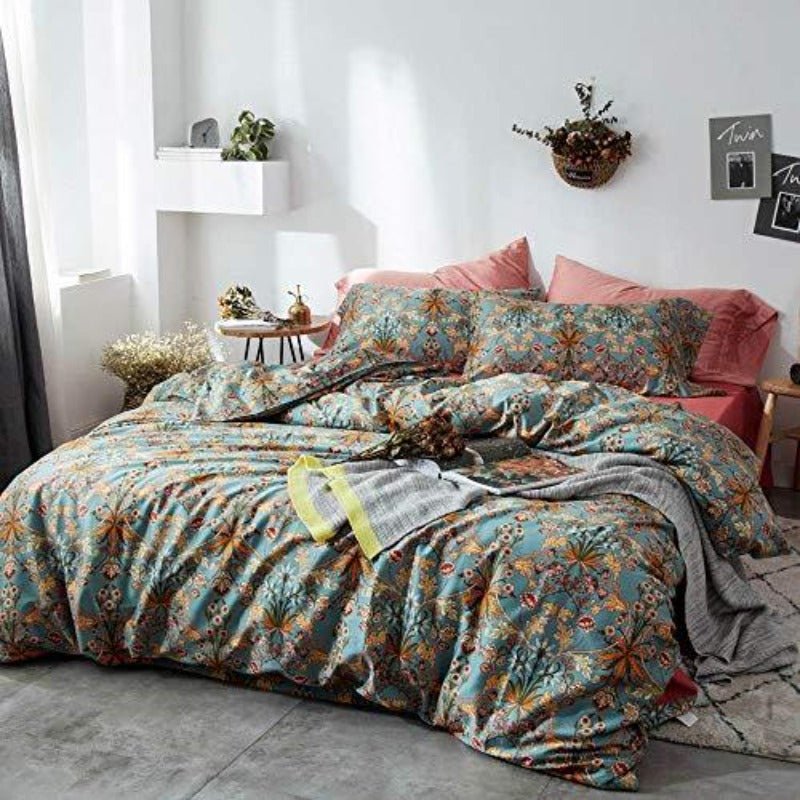
FAQ - Duver vs Comforter
FAQ - Duver vs Comforter
Q: What is the difference between a duvet and a comforter?
A: The main difference between a duvet and a comforter lies in their construction and functionality. A duvet is a soft, flat bag filled with feathers, down, or synthetic fibers. It is designed to be inserted into a duvet cover, which acts as a protective and decorative covering. On the other hand, a comforter is a thick, quilted blanket filled with insulation material, such as down, polyester, or cotton. Comforters are typically used on their own without the need for a cover.
Q: How are duvets and comforters used differently?
A: Duvets are used in conjunction with a duvet cover. The duvet cover acts as a removable and washable outer layer that encases the duvet. This allows for easy cleaning and gives you the freedom to change the look of your bedding by switching out the duvet cover. Comforters, on the other hand, are used as standalone bedding. They are usually covered with a flat sheet or decorative top sheet, and additional layers like blankets can be added for extra warmth.
Q: Can you use a duvet without a duvet cover?
A: While it is possible to use a duvet without a duvet cover, it is not common practice. Duvet covers offer several benefits, including protection for the duvet, easy cleaning, and the ability to change the style of your bedding. Using a duvet cover also allows you to add an extra layer of warmth or switch to a lighter cover during different seasons.
Q: Are duvets or comforters easier to clean?
A: In terms of cleaning, duvets can be easier to maintain compared to comforters. Since duvets are inserted into a removable duvet cover, you can simply remove the cover and launder it separately, keeping the duvet clean and fresh. Comforters, on the other hand, may require more effort to clean due to their larger size and thicker construction. Some comforters are machine washable, while others may require professional cleaning.
Q: Which one provides better warmth and insulation?
A: Both duvets and comforters can provide warmth and insulation, but the level of warmth may vary depending on the fill material and thickness. Duvets filled with down or feathers tend to offer excellent insulation and lightweight warmth. Comforters with a high-quality fill material, such as down or synthetic fibers, can also provide excellent warmth. However, it's important to consider the fill power, fill weight, and overall thickness when comparing the warmth provided by duvets and comforters.
Q: Can duvet covers fit on comforters or vice versa?
A: Duvet covers and comforters are generally not interchangeable in terms of size and design. Duvet covers are specifically designed to fit duvets, which have a different shape and size compared to comforters. Comforters, being thicker and often quilted, do not typically have the same attachment mechanisms as duvets. It's important to choose the appropriate cover or comforter based on your specific bedding needs.
Understanding the differences between duvets and comforters is essential in selecting the right bedding for your needs. While duvets require a duvet cover for protection and style, comforters can be used as standalone bedding. Consider factors such as cleaning ease, warmth, and personal preferences when deciding between a duvet and a comforter.
16 comments
ecazn5
bcjoej
4qf031
77zs9g
hafqmw